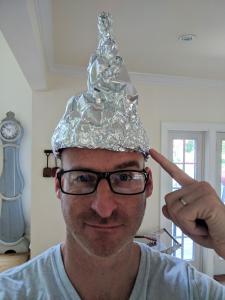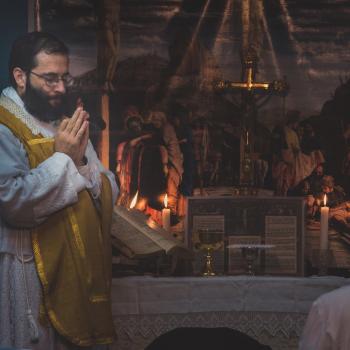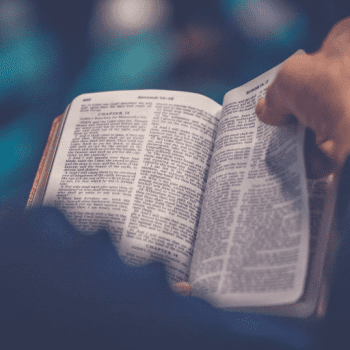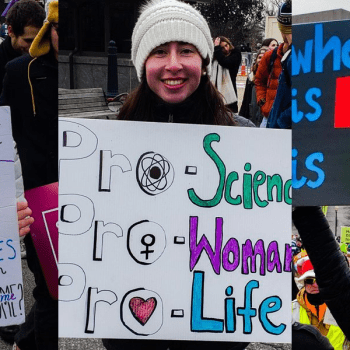Our goal as Catholics is to share Jesus’ message with the whole world. A big part of this message comes down to credibility. We know the faith is true, but that is not the only aspect of persuasion. If we are credible people beyond faith, then others are far more likely to accept our messages. Promoting conspiracy theories harms our credibility.
The recent tendency of many in the Catholic online sphere to buy into conspiracy theories, nonsense, or pseudoscience has made us less credible, thus less persuasive. We need to stop this.
The Issue of Credibility

If someone sees a claim from a highly unreliable source, they are less likely to even consider it as a truth claim. For example, before entering the seminary, I would sometimes read the Weekly World News for a laugh. If someone put a true article about the Eucharist or confession beside stories like “Bigfoot Diet: He loses 150 lbs. – it can work for you too” and “Mini-mermaid Found in Tuna Sandwich,” I’d be unlikely to take it seriously.
Likewise, if today if I hear a story from Alex Jones, Dr. Mercola, or the National Enquirer, I’m unlikely to take it seriously. If a serious source later confirms it, I will take it more seriously. Credibility is a major factor in persuasion.
Those who post conspiracy theories or disproven science as if they were true are less credible. When considering the faith, there is the added factor that if someone believes all kinds of random nonsense online, one comes across as overly credulous or gullible to believe anything whether true or false. This is not the way we want Catholics perceived.
Online Catholics Pushing Conspiracy
I had seen a few Catholics online pushing nonsense, pseudoscience, or conspiracy theories as “Catholic” content before, but in 2020 this has reached quite unhealthy levels. I see this regarding COVID and fringe theories about the Church.
Some argue COVID-19 is a hoax or was planned but their evidence is paper-thin. Or certain Catholic sources rely on one or two doctors who are outliers without even checking their position against the consensus.
Some argue that Russia was never consecrated to the Immaculate Heart as Mary asked in Fatima. But to believe that, you need to believe deliberate lying and conspiracy at the highest levels. For that to be true, St. John Paul II, Sr. Lucia, and Benedict XVI along with many others would have all had to lie. That seems incredibly unlikely. Plus, Sr. Lucia is the source for the need to consecrate Russia so if she is not reliable to say it’s done, she’s also then not reliable to say Mary asked for it.
Jimmy Akin dealt with the wacky information coming from Fr. Michel Rodrigue who made a bunch of claims many believed credulously. Since the supposed end time of October 2020 passed, I think fortunately his credibility is on the decline. We should not be putting people like him forward as examples.
Now Catholic social media is abuzz with conspiracy theories. One is that a priest who was in a vaccine trial and died months later of a heart attack was killed by the vaccine. Heart attacks are a common cause of death in your 70s and the vaccine was out of his system within hours, so months before he died. Thus, we can be over 99.9% sure the two events were unrelated.
Conclusion
Catholicism is not a conspiracy theory. Catholicism is dedicated to the truth in all areas. Conspiracy theories start with a conclusion then cherry-pick or twist facts to fit that conclusion. That is not the way of science or theology. Let’s be faithful to the Church and honest in our pursuit of truth. Let’s end the constant sharing of conspiracy theories among Catholics online. Let’s show others the beauty of the Church, not send them away by the untruth of such nonsense.
Note: Please support me on Patreon to keep writing things like this.












